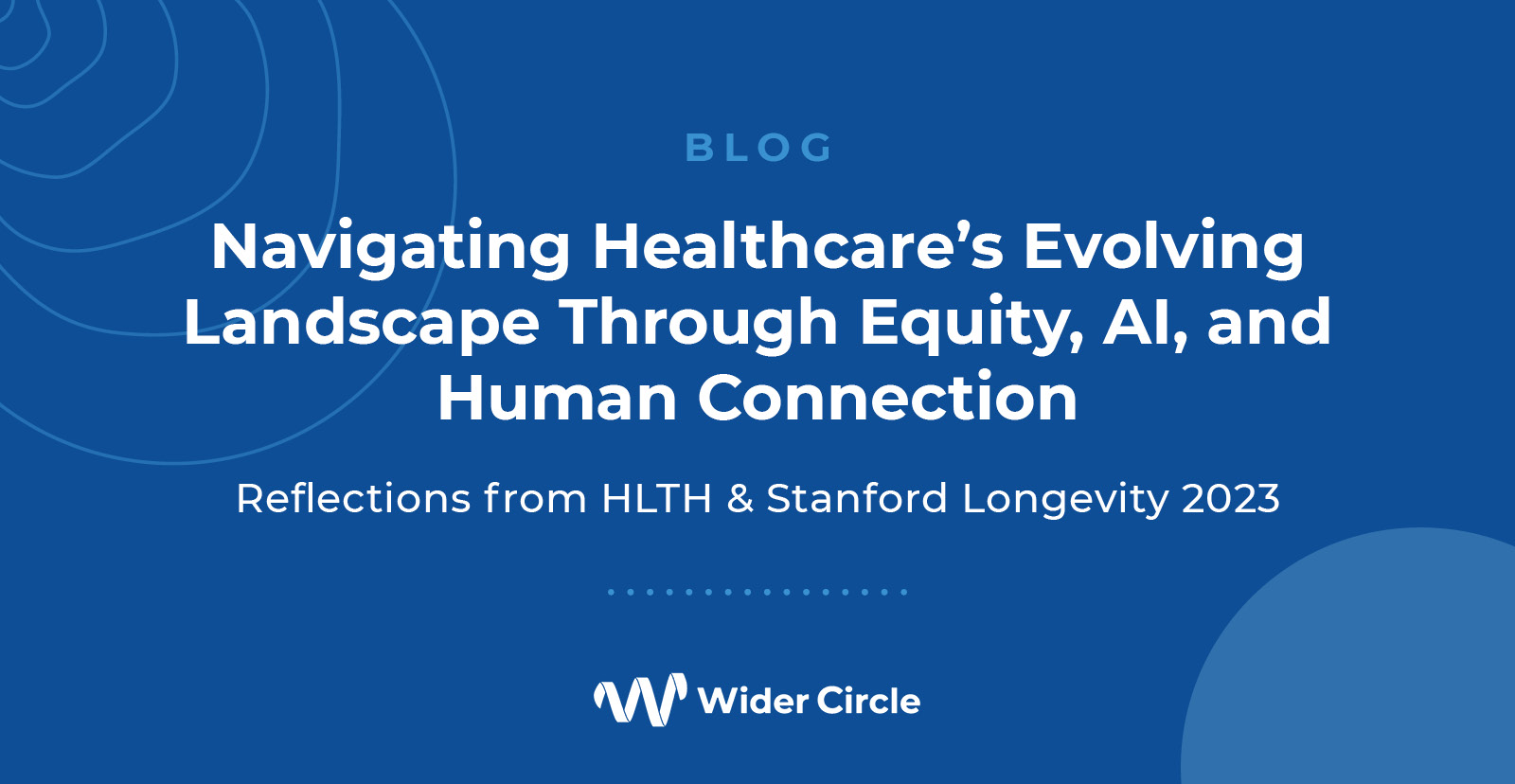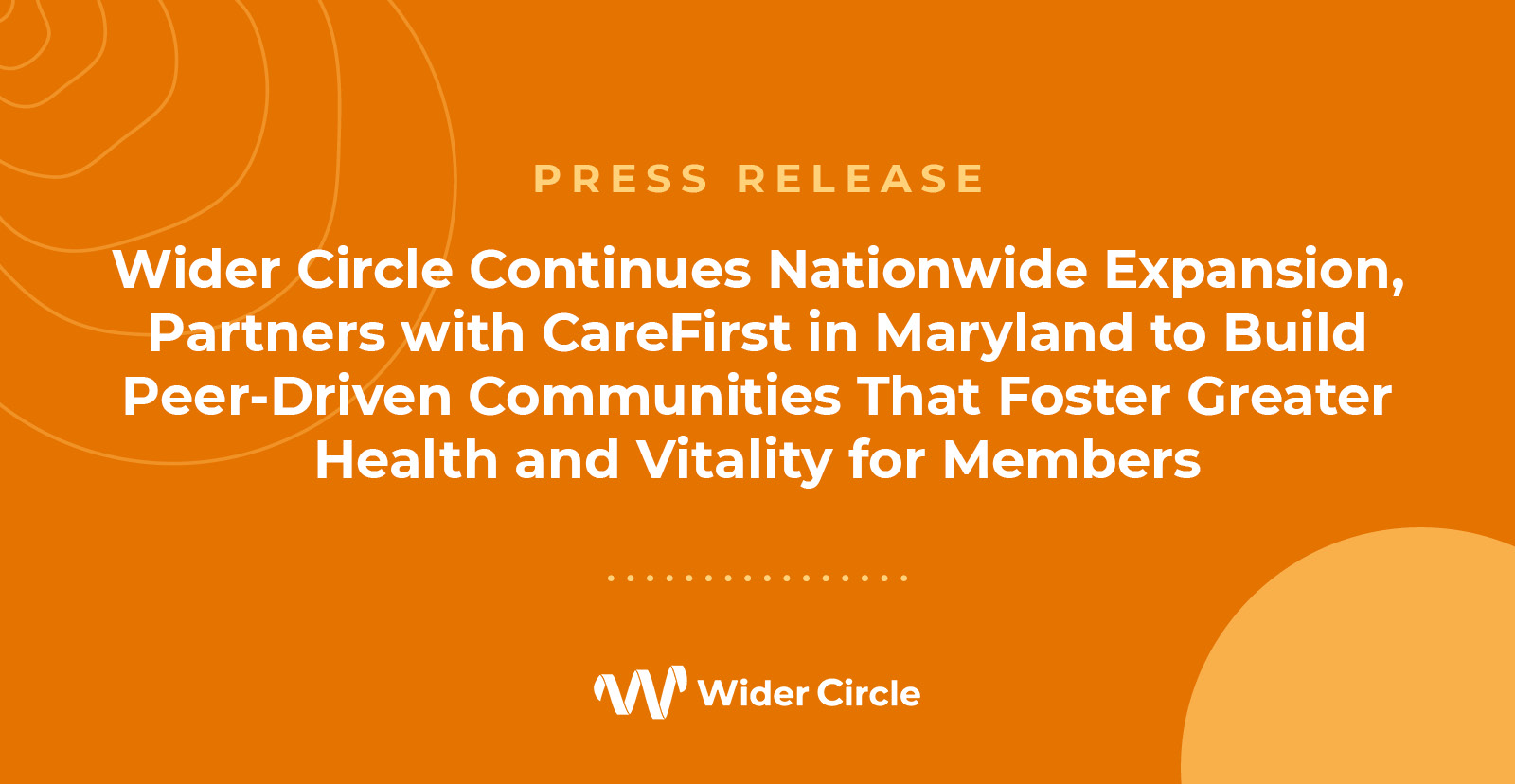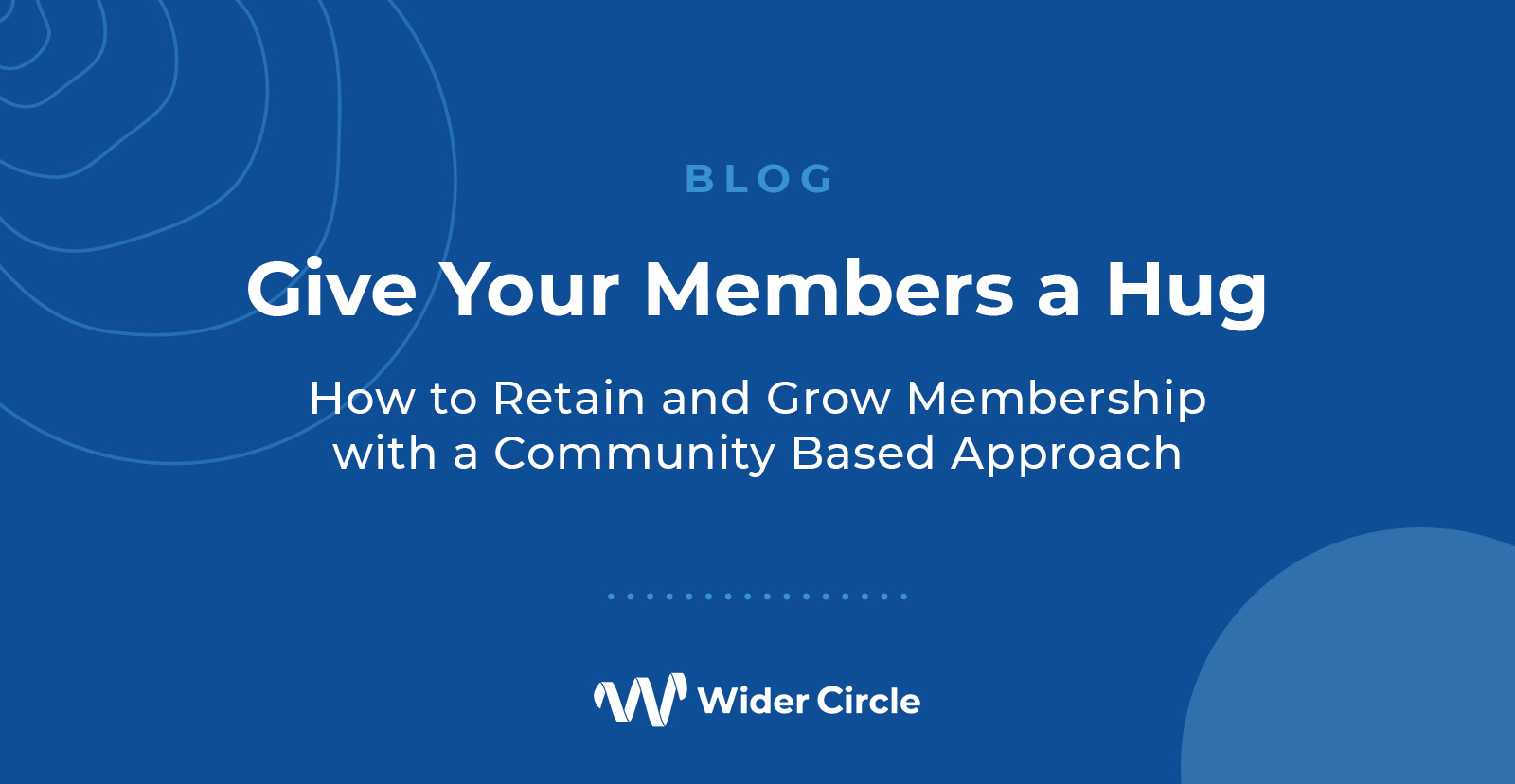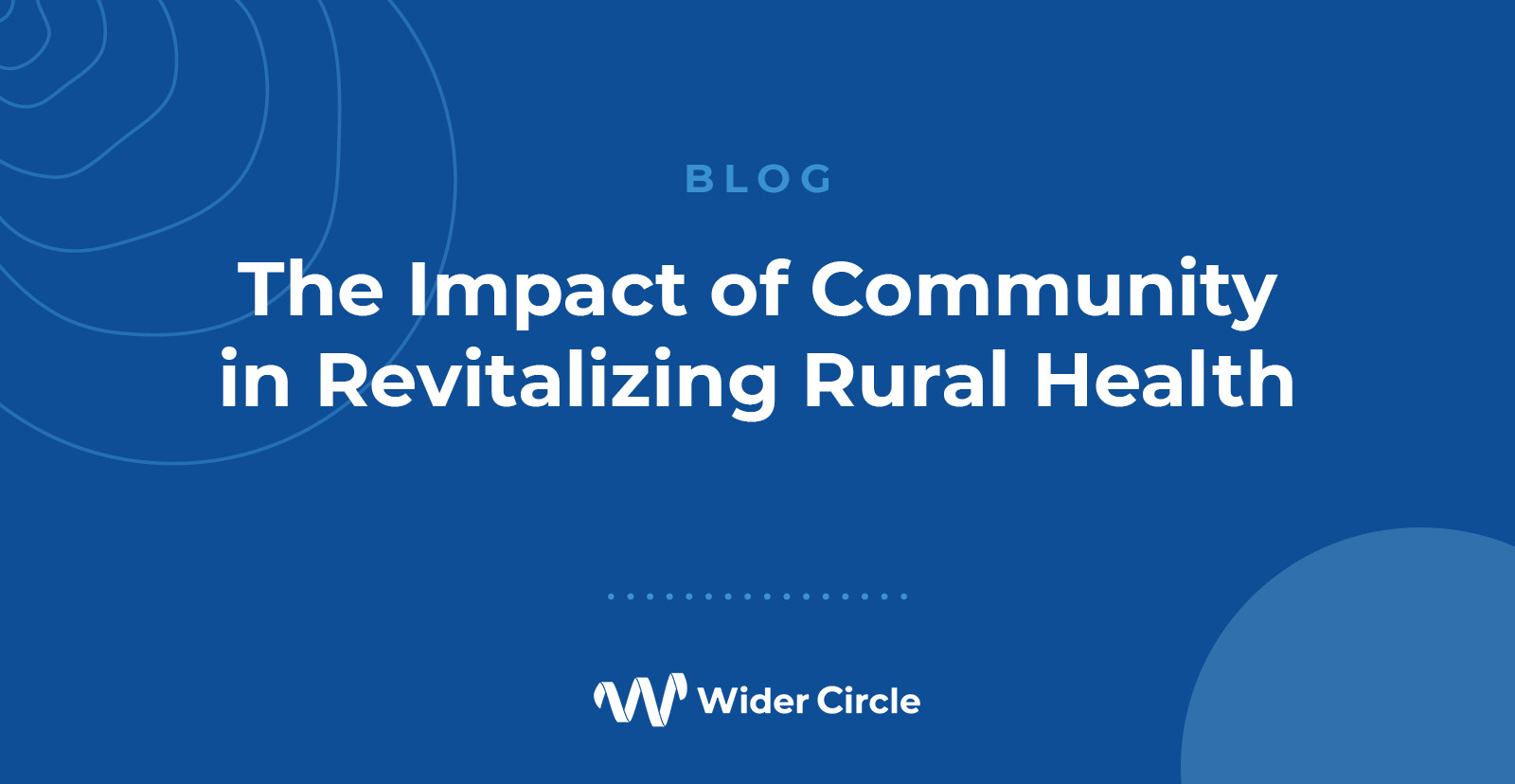
By: Darin Buxbaum
Over the past month, I’ve spent a considerable time on the road attending a variety of events and forums. Largest among those was HLTH 2023, the event that brings the healthcare ecosystem together to tackle the industry’s most complex challenges and catalyze change, as well as the Stanford Century Summit. Both optimism and wariness were on display at this year’s conferences: rosy expectations for the potential of AI in healthcare were tempered by cautions of the challenges impeding its adoption; the emphasis on healthcare technology innovations was offset by the increasing recognition of the importance of human connections; and the growing health divide in the U.S. continued to loom large over everything.
Three key themes that emerged caught our attention:
Health Inequities: A Stubborn Challenge Demanding Innovation
The stark contrast between those who have access to high-quality healthcare, and financial opportunity, and those who do not remains a stubborn obstacle to progress. At HLTH 2023, speakers discussed various strategies to bridge this divide. At Wider Circle, we’ve been tackling this divide since our founding, by actively working to reduce health disparities with community-based solutions that go beyond traditional clinical care.
We recognize that health inequity is often rooted in social determinants of health such as income, education, and access to resources. Our unique Connect for Life (CFL) program builds trusted neighborhood groups where members gather, connect, and motivate each other to achieve happier, healthier and more resilient lives. These CFL Circles serve as a catalyst to foster social connection. In doing so, we improve health equity and address social determinants of health. Our communities are an extension of the traditional clinical care model that leverages the power of peer influence and creates bridges to the healthcare system through trusted community liaisons – improving patient outcomes and increasing member retention for payers and providers.
The path to resolving health inequities is not easy. However, companies like ours are committed to building a way forward, concentrating on holistic solutions that recognize the multifaceted nature of the challenge.
Artificial Intelligence: A Promising Frontier
AI has captured the imagination of the healthcare industry, offering tantalizing prospects for more efficient and effective healthcare services. But while the potential of AI seems limitless, it’s clear that the industry is still in search of concrete proof of concept at scale to demonstrate its transformative power in healthcare.
At HLTH 2023 and other forums, AI has been at the forefront of discussions, with experts exploring its myriad applications, from predictive analytics to individualized workforce training. While smaller AI implementations in healthcare have shown promise, the integration and substantial impact the industry seeks remain a work in progress.
At Wider Circle, we are exploring how AI can augment our capabilities and the experience for our members. There are myriad potential applications for us – ranging from expanding our analytics, improving resource allocation, to creating dynamic ways to create connections within our communities. But as much as the novelty and excitement around this is palpable, our approach to the use of AI will be driven first and foremost by how it enhances the trusted connections we create with our members.
The Importance of Human Connection in the Digital Age
In a world defined by rapid technological progress, it’s all too easy to forget the vital importance of human connection. However, HLTH 2023 and Stanford’s Century Summit made it clear that even for today’s digital-first companies, prioritizing human connections is paramount to achieving successful outcomes in healthcare and other industries. Amid all the excitement surrounding AI and digital technologies, it’s crucial to remember that at the heart of healthcare are people—patients, caregivers, and healthcare professionals—who rely on human connection. Ensuring that technology enhances these connections rather than replaces them is an imperative.
Wider Circle was founded, and remains at its core, about human connections. While we leverage technology to connect people to elevate healthcare outcomes, we are committed to preserving the human element. Our approach is a testament to the power of a people-first focus in driving effective change in healthcare and beyond.
I have been struck this year by the consistency in the threads of my discussions on the road. We at Wider Circle are proud to be playing a pivotal role in addressing these challenges. We’re developing community-based solutions, exploring the application of AI to identify and assist vulnerable populations, and promoting human connections.
As the industry continues to evolve on these key issues, we’re certain to encounter challenges, but with innovation, dedication, and a steadfast commitment to putting people first, we move closer to a healthcare system that is not just efficient but also compassionate, equitable, and profoundly transformative.


